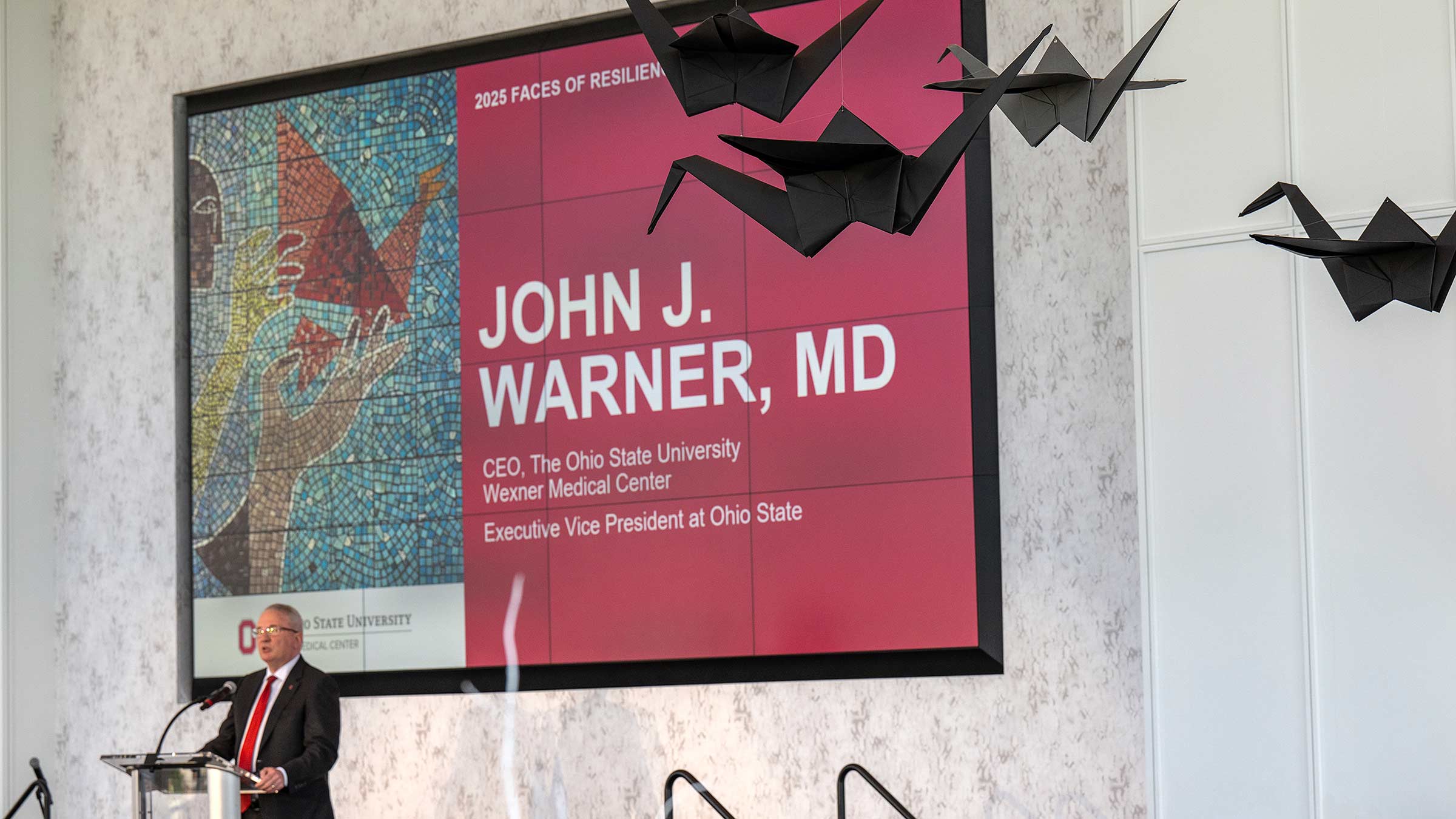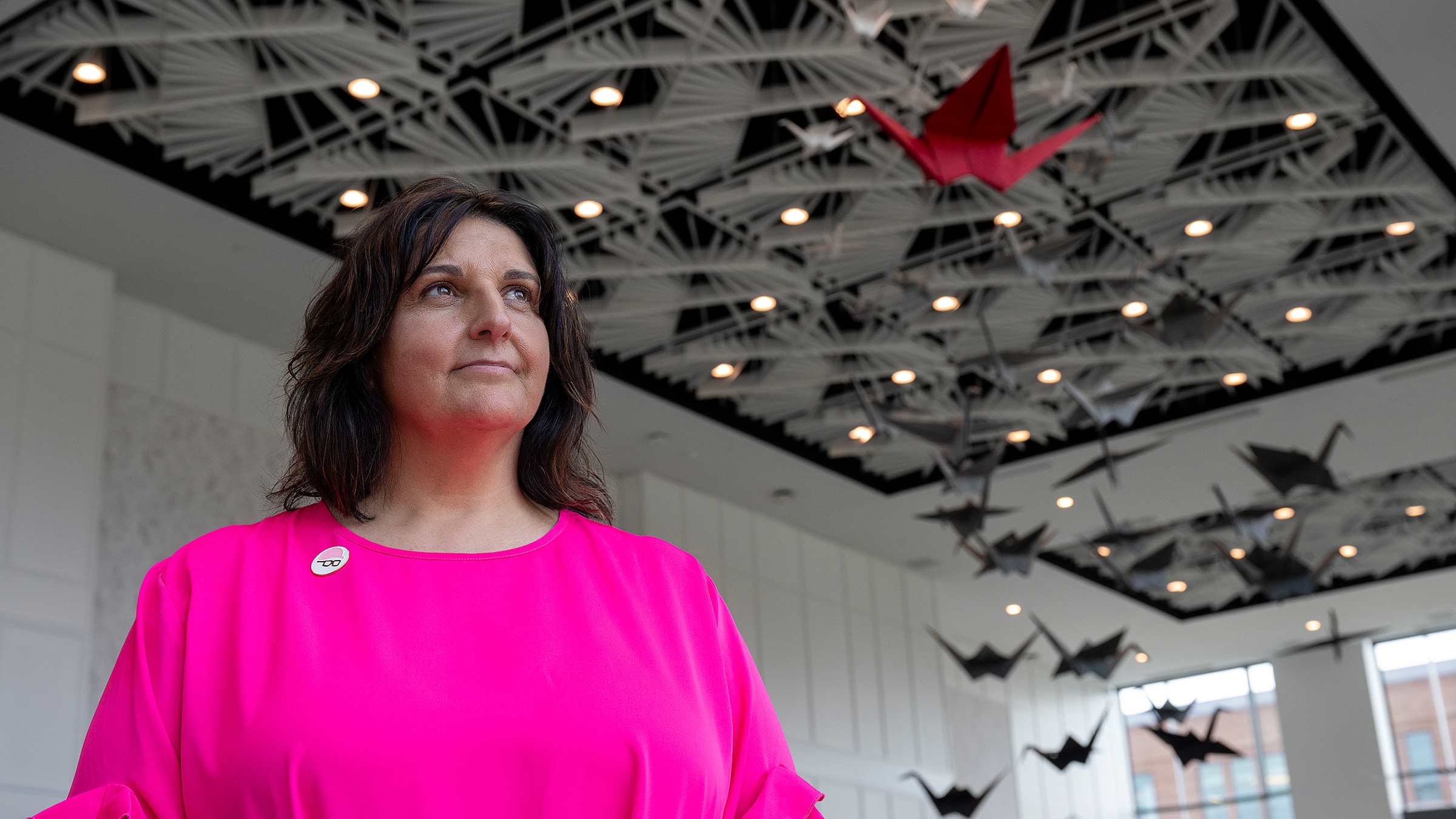‘We must act now’ in face of suicides, overdose deaths
New site for Center for Psychiatry and Resilience will bring together researchers, treatment teams to address mental health crisis.
K. Luan Phan, MD, issued a call to action with a staggering data point.
At least 500 Ohioans are lost monthly to drug overdoses and suicides, he told a group gathered for a recent “Faces of Resilience” fundraising event hosted by The Ohio State University Wexner Medical Center, where Dr. Phan oversees psychiatric services.
“You can see the level of crisis that we are facing,” Dr. Phan said. “We need to collectively make the decision that this must stop, and we must act now.”
But there is also good news, he added. As an academic medical center, the Ohio State Wexner Medical Center knows how to tackle some of the most complex and challenging problems of our time.
The Center for Psychiatry and Resilience aims to do just that by bringing its world-class programs and experts together to serve as a comprehensive care destination and research hub.
“Mental health care is integral to overall health care, so this center brings together world-class clinical research leaders with expertise in trauma care, suicide prevention, depression, addiction recovery and early psychosis interventions, all to help address the growing mental health epidemic,” says John J. Warner, MD, CEO of the Ohio State Wexner Medical Center and executive vice president at Ohio State.

The center currently boasts six national programs of distinction in The Ohio State University College of Medicine Department of Psychiatry and Behavioral Health:
- The Addiction Medicine program treats addiction as a chronic disease of the brain and offers a full range of care to improve the lives of impacted individuals and families.
- The Depression Recovery Center offers a full spectrum of personalized care for all patients, from those with first-time depression to those with chronic depression, including relapse prevention.
- The Early Psychosis Intervention Center seeks to prevent psychotic disorders in those most at risk, promote early recovery for those facing a first crisis and provide support for those at later stages of the condition.
- The Stress, Trauma And Resilience (STAR) program supports people affected by trauma, offers care for first responders and health care workers and provides community education.
- The Suicide and Trauma Reduction Initiative (STRIVE) helps people with suicidal thoughts, post-traumatic stress disorder, traumatic brain injury, depression, chronic pain, physical disability and related conditions.
- The State of Ohio Adversity and Resilience (SOAR) Study is a collaboration between the state and several universities and health care systems to improve mental health support and treatment through a multigenerational research study of people in all 88 Ohio counties.
The center also has a young adults program to address the special needs of that demographic.
The goals of the center are to provide hope and to support healthier communities by developing innovative, resilience-based treatments and programs focused on prevention and early intervention.
Call or text 988 for a 24/7 Suicide and Crisis Lifeline
Under Dr. Phan’s leadership over the past six years, funding for the programs has already grown from $2 million to $62 million, the number of department faculty members has tripled and 100,000 outpatient visits are being provided each year, Dr. Warner says.
Following the model of cancer and cardiac centers — which place researchers alongside treatment specialists and educators — will allow mental health professionals to deliver results, says Dr. Phan, who is a professor and the chair of the Department of Psychiatry and Behavioral Health at the Ohio State College of Medicine, where he also holds the Jeffrey Schottenstein Endowed Chair of Psychiatry and Resilience.
“While we’ve made some progress, our patients — young and old — continue to suffer, and so do the families and communities that live and work with them, and care for them and care about them,” he says.
“We need to be a place that serves as a care destination and a research hub to transform the way we approach, treat and care for those struggling around illness and addiction,” Dr. Phan says.
“In mental health, you’re talking about suicide prevention, you’re talking about addiction, you’re talking about depression. These things all overlap. It’s like a Venn diagram,” says Holly Kastan, MSW, senior strategy officer and co-founder of the STAR program. “To have people operating in different silos is not serving our patients. The Center for Psychiatry and Resilience is place where we can bring them together.”
This will further allow for more personalized care, tailored to each patient, and also help researchers get to the root causes of mental health issues.

“We started to make real progress with cancer when we developed the comprehensive cancer centers,” Kastan says. “That’s when we could get large scale research, and that’s when we could really start to make progress on finding the best treatments and cures.”
Dr. Phan says he envisions The Center for Psychiatry and Resilience serving as a model for behavioral health centers that can be replicated across the state and nation. As a public service institution, he says, Ohio State is committed to playing that role and has vast support from the state, businesses, alumni and the community.
“Like cancer, mental health affects every Ohioan, from the richest to the poorest, of every race and religion. It doesn’t discriminate,” Dr. Phan says. “We have an opportunity to lead in mental health and be number one across the entire country and the world.”

Your gift sustains a brighter future for Ohio communities
Support innovative psychiatric research and treatment that transforms lives.
Donate now




